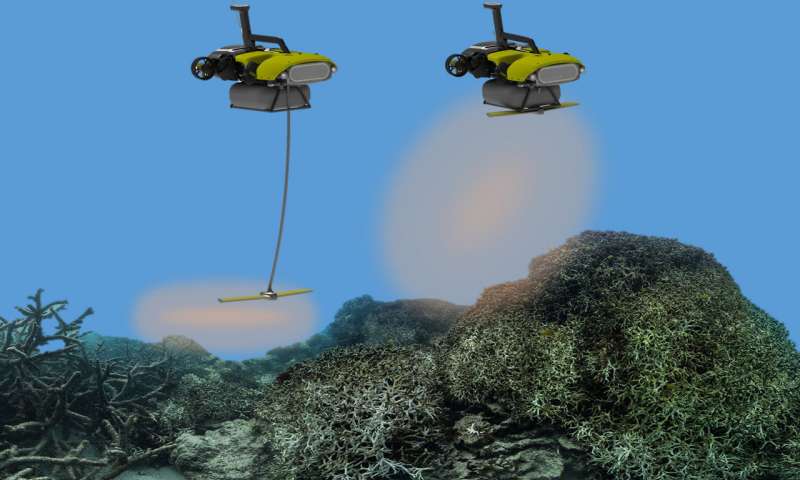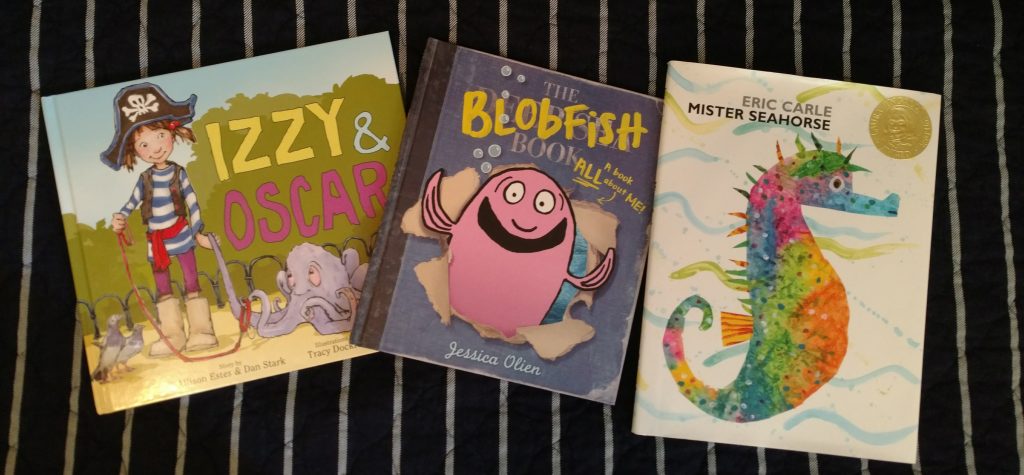Transcript provided below.
Are we finally going to lead with deep-sea mining? We’re going to lead with deep-sea mining. Welcome to the Weekly Salvage.
Over 15 years of ocean science and conservation online
Transcript provided below.
Are we finally going to lead with deep-sea mining? We’re going to lead with deep-sea mining. Welcome to the Weekly Salvage.
Confession: I have an Amazon Echo. I really like Amazon Echo. I use Amazon Echo almost every day.
Everything about the Amazon Echo is great, except for the primary feature of the Amazon Echo: it is always listening. When I received the Echo nearly five years ago, as a gift, Amazon was not quite the Surveillance Capitalism behemoth that it is now. They packaged their new smart speaker with lots of information about privacy and what Echo can and can’t and won’t do.
Of course, none of that turned out to be true. In just the last year, Echos have been turned into permanent recording devices, listened to a couple’s conversations and then inexplicably sent those conversations to the husband’s employer, and sent 1,700 voice recordings to a totally random stranger. Amazon hasn’t exactly done much to help the image of Echos as Bradburian household horrors, unveiling an Echo Dot for Kids, filling patents for true always-on recording, releasing recordings to outside contractors, and, perhaps most egregious of all, embedding Alexa into a Big Mouth Billy Bass.
It’s reached the point where no one should feel comfortable having an always-on speaker in their home, but damn if these little things aren’t just so convenient. On top of being useful for quick searches, playing Baby Shark on repeat 40 times, checking the weather, and dozens of other little things, the original Echo was a really good speaker. It seems a waste to throw the whole thing away just because one feature is unacceptable.
[This article originally appeared yesterday in the Deep-sea Mining Observer. ~Ed.]
You can buy a 5-lb bag of polymetallic nodules from the Clarion-Clipperton Fracture Zone on Amazon, right now.
Depending on your vantage point and how long you’ve participated in the deep-sea mining community, this will either come as a huge surprise or be completely unexceptional. Prior to the formation of the International Seabed Authority, there were no international rules governing the extraction of seafloor resources from the high seas. Multiple nations as well as private companies were engaged in exploration to assess the economic viability of extracting polymetallic nodules and tons of material was recovery from the seafloor for research and analysis. Some of that material almost certainly passed into private hands.

Foghorn (A Call to Action!)
Flotsam (what we’re obsessed with right now)

After two weeks off, we’re back and bigger than ever! Cuttings (short and sweet): Follow Archaeologist makes case for seafaring Neanderthals. By Christopher Ingraham, for Scientific American. Larson Creek trout may have been wiped out. By Randy Shore, for the Vancouver Sun. US Coast Guard steps up efforts to protect right whales. From GCaptain. The US … Read More “Seafaring neanderthals and switchblade fish: A mega Thursday Afternoon Dredging, May 10th, 2018” »
Southern Fried Science is growing! Thanks to Patreon and a few passive income streams, for the first time in almost a decade, we’re able to begin paying our volunteer writers for their outreach efforts. This year, we’ve established the Southern Fried Science Writers’ Fund to begin paying out compensation for all the incredible work that … Read More “How to support your favorite Southern Fried Science writers in 2018” »

It’s been almost exactly a year since I selected the 5 best baby books to launch your child’s ocean education. Since then, our expert judge has gotten a bit more discerning and a lot more opinionated. As a family of marine scientists, our massive library of ocean-themed children’s books, some amazing, some not-so-amazing, seems to grow exponentially.
After critical review by two PhDs in Marine Science and Conservation and one very perspicacious toddler, for both scientific accuracy and pure delightfulness, here are our top 3 children’s books to get your toddler thinking about the ocean.
Read More “The 3 best ocean books for toddlers, as selected by a very ocean-savvy toddler” »
 Fleet: Dereliction is now available through the Amazon Kindle store!
Fleet: Dereliction is now available through the Amazon Kindle store!
“Captain Spat, father of Bosun Salmon, you stand accused of mutiny for allowing the theft of NC-3502-WM by negligence in your duties as both father to your daughter and mentor to your crew! How do you plead?”
The fleet is in chaos. Their best ship has been stolen. With her authority slipping away, the Admiral must seize command, root out the mutineers, and recover her stolen vessel. But, on the other side of the Reach, the trio – Croaker, Snapper, and Salmon – have reached their destination, the mysterious derelict that has been supplying the fleet for months.
The darkest secrets in the fleet will rise to the surface.
Head on over and check it out! It’s only $0.99, what have you got to lose?
Read More “Check out Fleet: Dereliction, part 3 of my maritime science fiction serial!” »
 Today marks the release of Fleet: Wide Open, part 2 of my serial maritime science fiction adventure. With half the story revealed, we now see the roll technology plays in both the history and the day-to-day operations of the fleet. Specifically, we see three major technological advances that seem as though they would have been major solutions to the environmental problems facing the fleet, yet somehow, the world continues to fall apart.
Today marks the release of Fleet: Wide Open, part 2 of my serial maritime science fiction adventure. With half the story revealed, we now see the roll technology plays in both the history and the day-to-day operations of the fleet. Specifically, we see three major technological advances that seem as though they would have been major solutions to the environmental problems facing the fleet, yet somehow, the world continues to fall apart.
In our world and the world of the fleet, we often hold up technological innovation as a panacea for global problems. It’s easy to look towards the next big advancement as the solution to our current woes — from alternative energy sources to groundbreaking trash removal devices — but what is often lost in the hype is the human component. Yes, technology is a necessary component of global environmental solutions. You can even look at the arc of human advancement as one long series of bootstrap-hoists — we need to utilize dirty tech to access environmentally sustainable tech (i.e. you can’t develop the ability to produce solar panels without first harnessing the energy locked in fossil fuels). But technology alone is useless without also changing human behavior. This creates a major problem, as technological innovation is often used as a tool to bypass human behavior entirely, the assumption being that it doesn’t matter what the individual does, so long as the tech is in place to mitigate it.
The horse piles of New York
Around the turn of the last century, New York City was in crisis. Horses, the primary means of transportation for people and products within the city have an unfortunate byproduct — feces, lots and lots of feces. At its peak, more than 60,000 horses were depositing upwards of 500 tones of manure every day. The horse crisis itself was the result of a major technological innovation — more efficient fertilizer based on mass produced phosphate. Where once there was a major economic incentive to collect the manure and resell it as fertilizer, now there was also no incentive. And so, the mountains of feces piled up. It got so bad that one editorial expounded that, by the 1930’s piles of horse manure would stand three stories tall and the city would be awash in an unending tide of feces.
Read More “Science in the Fleet: The Promise of Technology as a Panacea for Human Impacts” »
“The sea is big. The sea is cruel. She takes more than she gives. That’s how it’s always been.” Fuel is the lifeblood of the fleet and it is running out. It has been months since the crew of Miss Amy brought home a catch big enough to feed the fleet. With fuel rationed, there … Read More “Fleet: Wide Open now available in the Amazon Kindle Store!” »